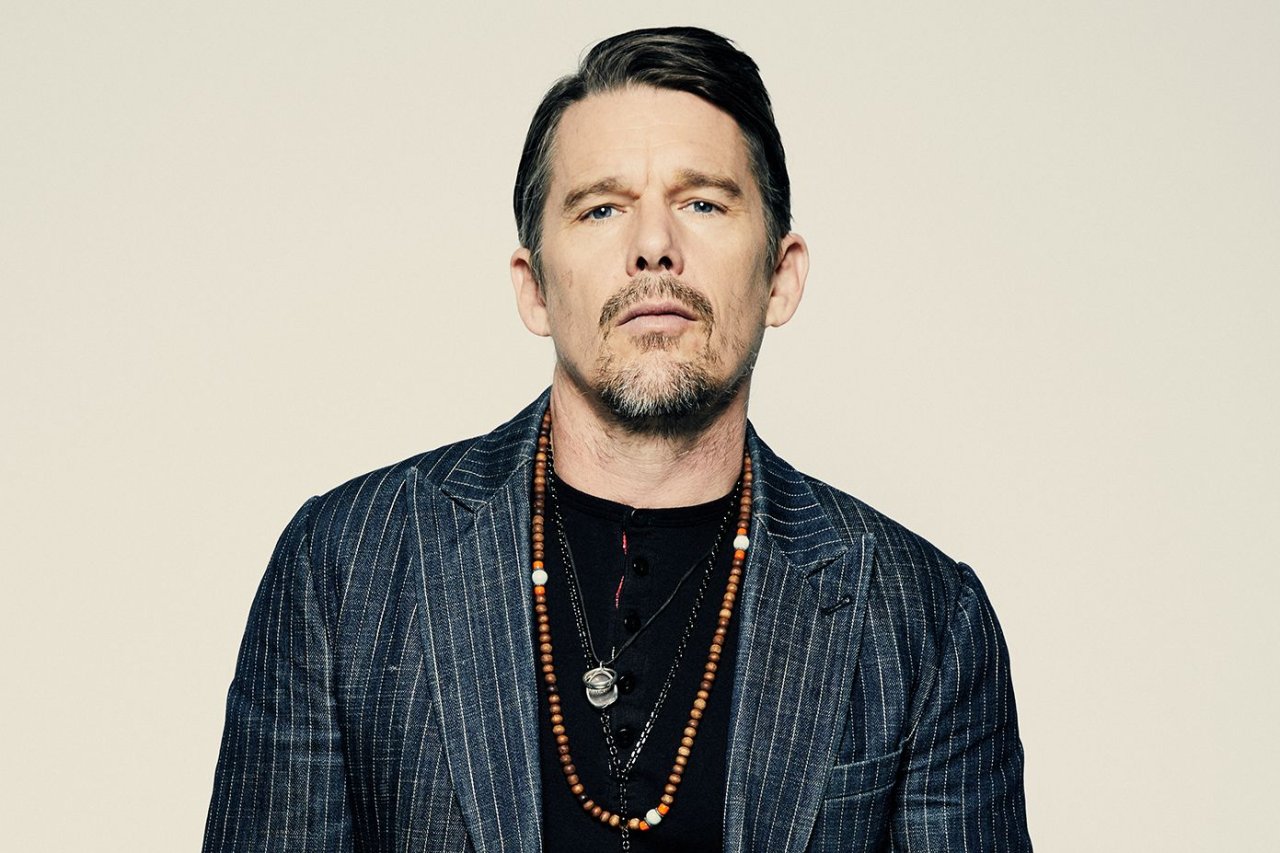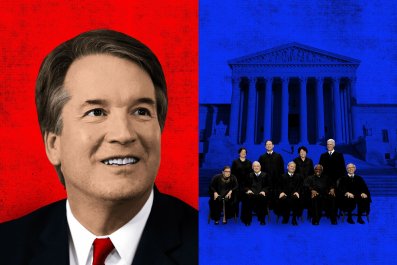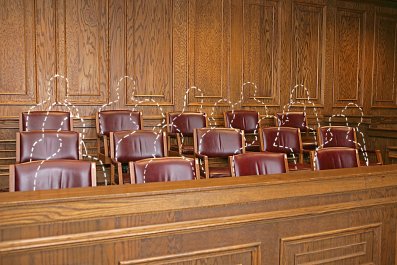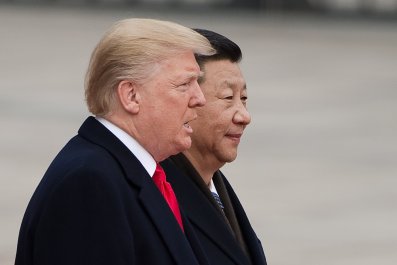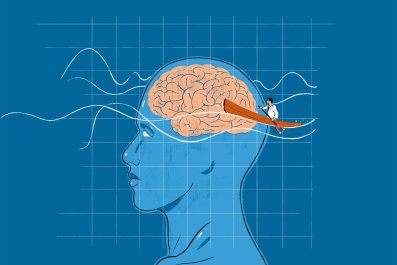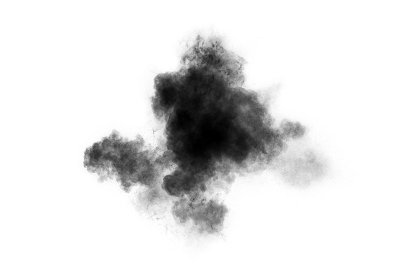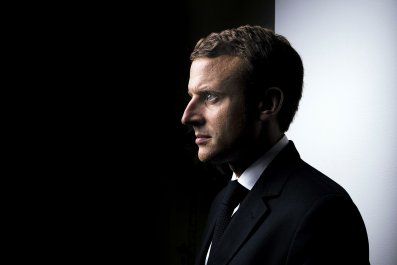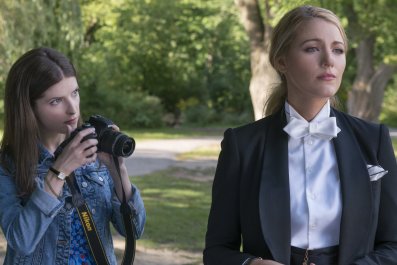In 2006, Ethan Hawke was driving across Canada, where he owns a summer home, with his friend Ben Dickey, a musician. Dickey was carrying a recording by a musician named Blaze Foley, a long-forgotten country singer who was shot to death under murky circumstances in 1989. Hawke stuck it in the CD player and was instantly captivated.
A few years later, Hawke started hunting for Foley's music online and discovered a concert recording called Live at the Austin Outhouse. "I just listened to it compulsively," Hawke says. "I became hypnotized by the sound of the bar and the door opening and him chattering endlessly. It's so beautiful—what little money he had to try to record these songs, almost as if he knew he was gonna die."
That obsession culminates with Hawke's wistful new film Blaze, in which Dickey plays the unsung country hero as he falls in love and slips into alcoholism. (Hawke directed and wrote the screenplay with Foley's widow, Sybil Rosen, based on her memoir.)
At 47, Hawke is having a moment. His work has evolved well beyond the pretty-boy roles that began with 1989's Dead Poets Society—on both sides of the camera (Blaze is his fourth film as a director). What could have been a classic leading-man career has become one of Hollywood's most provocative and unexpected. In 2018 so far, he's delivered two remarkably disparate performances: as the gaunt and haunted minister in Paul Schrader's wrenching First Reformed (which gives him a shot at his first Oscar win) and as the scruffy, washed-up rocker in the Nick Hornby adaptation Juliet, Naked.
"He's turned on by the world," says Dickey. "He's a searcher and wants to be inspired. He could have done X-Y-Z after Training Day [garnering Hawke his first Oscar nomination]; he could have started focusing on bigger roles. Instead, he wrote a book. He didn't care that people would go, 'Keep in your lane—you're an actor, not a writer.'"
Dickey says he's been pushing Hawke to make music with him. Hawke insists that acting is a sort of music when done right. He spoke to Newsweek about Blaze, working with Schrader and his abiding reverence for Nicolas Cage.
You may be the only actor to play a rock star and a priest in the same year.
[Laughs.] That's a good "only" to have.
In First Reformed, you play a despairing character who becomes violently fanatical in his devotion. What was your response when you first read that script?
I had to play it. By page 3, I thought I had to play this part. I was really moved by it. It's so clearly the same voice that wrote Taxi Driver. If you hadn't read a Salinger book in 20 years and then you did, you'd immediately know it was Salinger.
What spoke to you?
For me, in the world we're living in right now, it was like a cry. The cry of an old lion. I felt it in my bones. To intellectualize it, I lose it. I just felt it.
Is the character's environmental anxiety something that haunts you in real life?
People who aren't thinking about that are not paying attention.
I don't want to spoil anything, but the final scene of First Reformed has blown some people away and left others confused. Do you have any thoughts about the ending?
So many. When I asked Paul [Schrader] about it, he had this fantastic answer: "A great movie starts as you walk out of the theater." A decent movie entertains you when you don't have anything to do after dinner and before you fall asleep. But a great movie asks you a question. And it haunts you. I often think of the end of One Flew Over the Cuckoo's Nest, when Chief throws the sink through the window and goes running into the woods with those drums, and McMurphy's eyes look dead, and you're not sure how you're supposed to feel. Good movies do that.
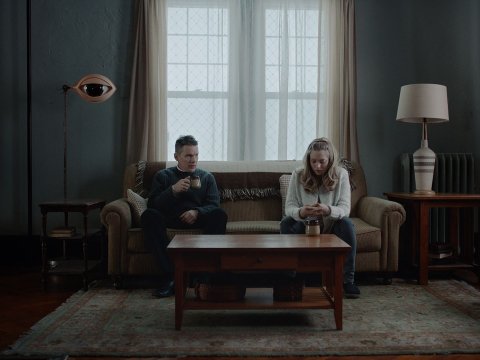
Were you a fan of Paul Schrader's classic movies, like Taxi Driver and Raging Bull?
Oh, yeah. When I first moved to New York, there was a revival house playing a double feature of Raging Bull and Taxi Driver. It's probably one of the best days of my life. Shortly after I saw Light Sleeper, which I also thought was brilliant. Not everybody loves everything Schrader does, but he's not complacent. He's always swinging, reaching and digging. He's a tough man. There's nothing saccharin or nice about him.
Schrader also wrote Martin Scorsese's Bringing Out the Dead. You've been outspoken about your admiration for Nicolas Cage, which I appreciate.
I think Nicolas Cage is one of the few people in the history of acting that has really changed [the form]. I mean, he's a true original—one of the greatest actors ever. His confidence and madness and dedication—you take his top 10 performances and I'd put 'em up against anybody. And they're revelatory! You know, [Konstantin] Stanislavski came up with this idea of naturalism and pursuing life as it is, moving away from a more performance-oriented Shakespearean style of singing roles. Brando and Lee Strasberg and the Group Theatre and all these people push it forward. Gene Hackman and De Niro and Meryl Streep—we've all been dutifully falling in line. Except for Nic Cage. He's doing something else!
Have you ever met him?
Yeah, I worked with him on a movie called Lord of War. I told him to his face. I don't know if he knew what to make out of me. But I do think he's really special.
Has Cage inspired you to lean into a more impressionistic style of acting?
I'm just locked into a kind of '70s style of truth-seeking. Nic comes at it from some other angle that's more mysterious to me. I've been pushing myself into more character roles—things like Maudie and The Magnificent Seven and the Chet Baker movie [Born to Be Blue]. It's been kind of wonderful. Around 40, I started to ask more of myself as an actor. I've fallen in love with it again.
You play a musician in Juliet, Naked, as you have in many prior films. Did you ever wish you were a rock star?
[Laughs] No. I love music. I've seen my life as an actor. I just think they're very similar. When you do a Sam Shepard play, you feel the rhythm. Sam's plays are like a percussive instrument. Richard Linklater's Before trilogy, the patter of that dialogue—there's a musicality to it when it works right. The movie is all talking, but there's rests and there's stops and rhythms. I've never seen much of a difference.
Between acting and music?
Yeah. Recently I've been thinking a lot about Dennis Hopper, what a kind of hero he was. He has this great quote about being raised a farm kid, and he never saw any difference between dance and music and photography and painting. It's all art. It's all trying to make sense of why we're born and why we have to die.
Let's talk about Blaze. What was it about Foley that made you want to turn his life into a biopic?
I'm kind of allergic to the expression "biopic." Almost every music biopic you see, they're about a famous musician. [But] virtually all the musicians I've known have been met with absolute indifference. Blaze let me tell that story, of what it means to express yourself in this world and get lost. To have there be no place for you.
The engine of this movie is my friendship with Ben Dicky. He was staying at my house one New Year's Eve. We were staying up late. He started playing [Foley's song] "Clay Pigeons." I was looking at him, and I thought: "He should play Blaze Foley in a movie." Then I came across Sybil's book, and the movie became crystal-clear. It's not a deification of some rock star. It's a book about time. It really intersects with how I feel about it.
What do you mean by how you feel about time?
It's a more movable thing than people think. The movie follows three time periods: The past, the present, the future are all so interconnected. And the past is always changing. For example, the first time you hear The Beatles' "Yesterday," it's a cute love song. When you get your heart broken for the first time, it's a song that cuts you in half. The song is always the same—the notes, the lyrics. But what it does to you is different.
So many of your movies explore the concept of time— Linklater's Boyhood, most obviously.
His Before trilogy as well [which Hawke co-wrote—providing him with two more Oscar nods]. It's a clear obsession of mine.
Speaking of the trilogy, will there be a fourth film?
It feels finished to me. There was something about the first two [Before Sunrise, Before Sunset] and the way they ended that seemed to call for a response. And there's something about the third [Before Midnight] that feels resolved to me. I'm not saying I wouldn't change my mind. I love those movies. They're three of the best experiences of my life.
Of all the directors you've worked with, who taught you the greatest lessons?
They all have. I've seen so many great directors work intimately, from Sidney Lumet [Before the Devil Knows You're Dead] to Peter Weir [Dead Poets Society] to Alfonso Cuarón [Great Expectations]. What they taught me is that there's not a right way to make a movie. Sidney Lumet has a different tool kit than Alfonso Cuarón. Linklater has a different tool kit than Peter Weir. I can pinch from them all.
What was Sidney Lumet like?
Sidney Lumet was an obsessive. He loved to rehearse. By the time you made the movie, the movie was done. It's a perfunctory exercise, the actual filming. Whereas a director like Cuarón—I don't think we ever rehearsed. We were writing the scenes as we shot them. It was like trying to ride lightning. And both can work!
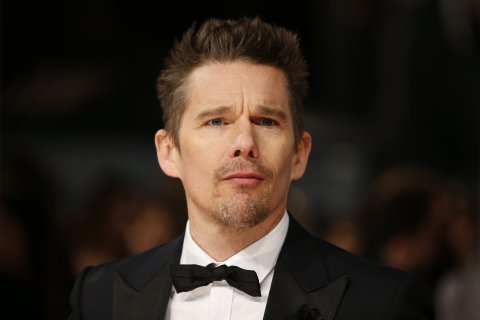
Does it bother you when people refer to you as a Gen X icon?
It bothered me back in the time period because I worried it was limiting. I was worried it'd be a box I'd get stuck in. Now I see it as a badge of honor. It's like, this is my generation. This is what we're about. We're at a crisis point right now as a generation about who we're going to show up to be.
What does the term "Gen X" mean to you now?
We were the first generation where we were all supposed to be educated, right? We were educated and unambitious. The slacker generation. When I hear "Gen X," I think of [Richard] Linklater's Slacker and Kurt Cobain. One of the things that's really interesting now is, we didn't realize how much we relied on the so-called Greatest Generation's leadership. Their love of democracy and their love of fairness because they saw themselves as Americans who won the war against fascism. George H.W. Bush brought down the Berlin Wall, and it wasn't a victory for Republicans. That was a victory for democracy and for our country. Something has happened as the Greatest Generation is leaving the planet. We've lacked a leadership on that level.
Do you feel like Boomers have burned it all down?
I just think generations move like waves. I've only been now going, "Where are all those World War II vets who always used to guide everybody in times of crisis? I think they'd be a lot of help right now."
How do you think your Gen X movies have aged?
Well, I'm the wrong person to ask. People still talk to me about them all the time. Before Sunrise, Gattaca, Reality Bites mean a lot to people. As the face of them, I get to be the recipient of a dialogue. It's meaningful to me how much the movies have aged well with people who come up to me.
Are there any roles you've done that you feel haven't aged well?
Oh, tons. The majority.
Which one would you erase if you could?
I certainly wouldn't want to bring it up with Newsweek magazine. If it's erased, I want it to disappear.
Is there a role you regret turning down?
There are so many parts I had to turn down because of timing that other great actors—Ed Norton, Matt Damon, Ben Affleck—appeared and stole. I was offered a part in [the Tom Stoppard play] Arcadia, and Billy Crudup took it, and it gave birth to his incredible career. I was one of the first out of the gate with Dead Poets Society, and every time I had to pass on a movie, some other actor appeared who would later steal work from me.
It sounds like Crudup owes you a beer.
[Laughs.] He's bought me many beers. It's OK.


